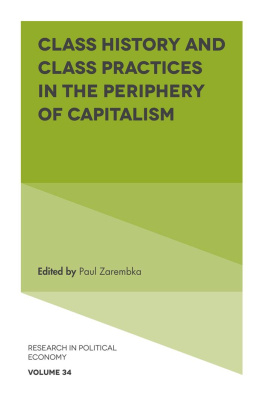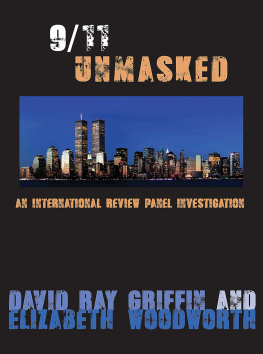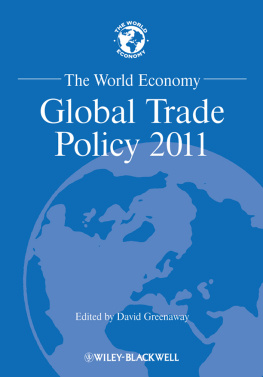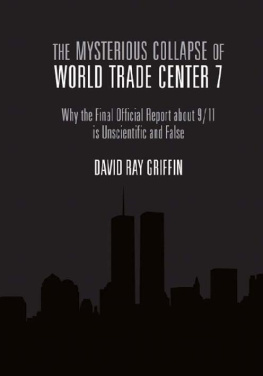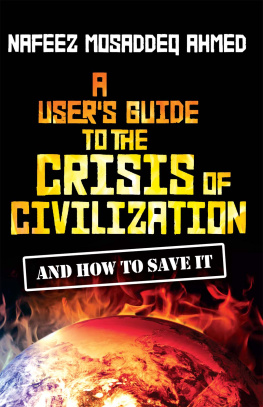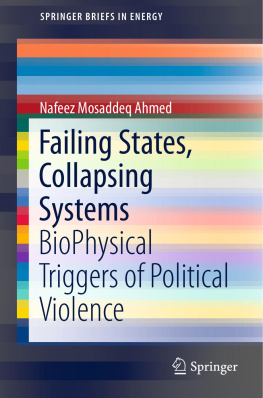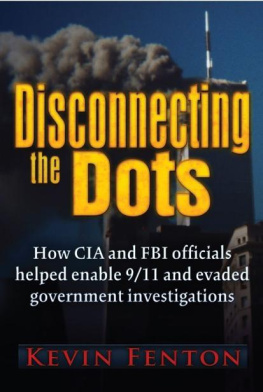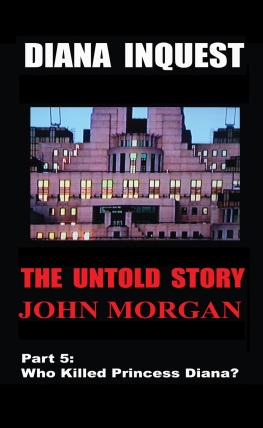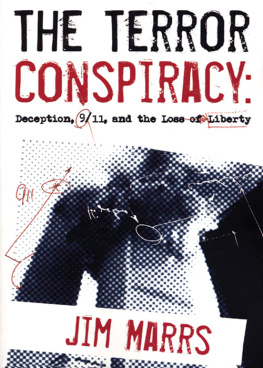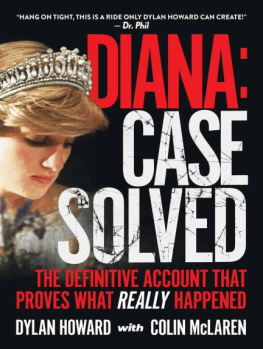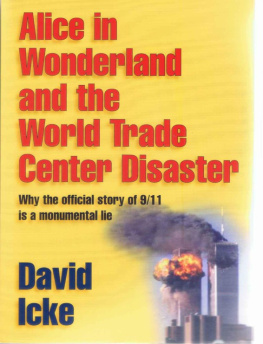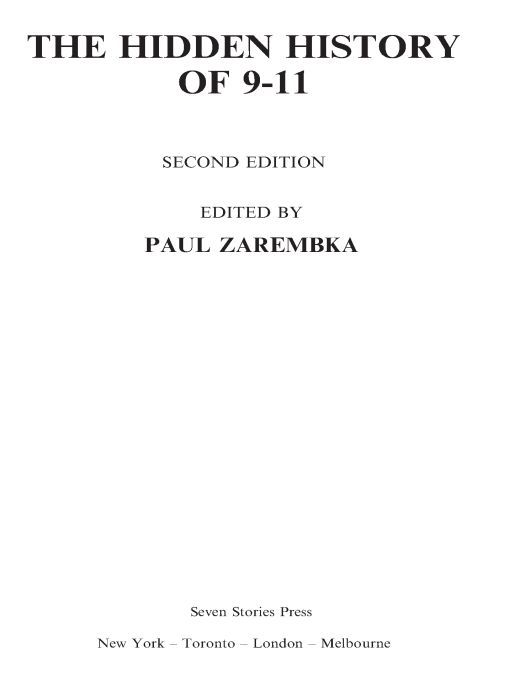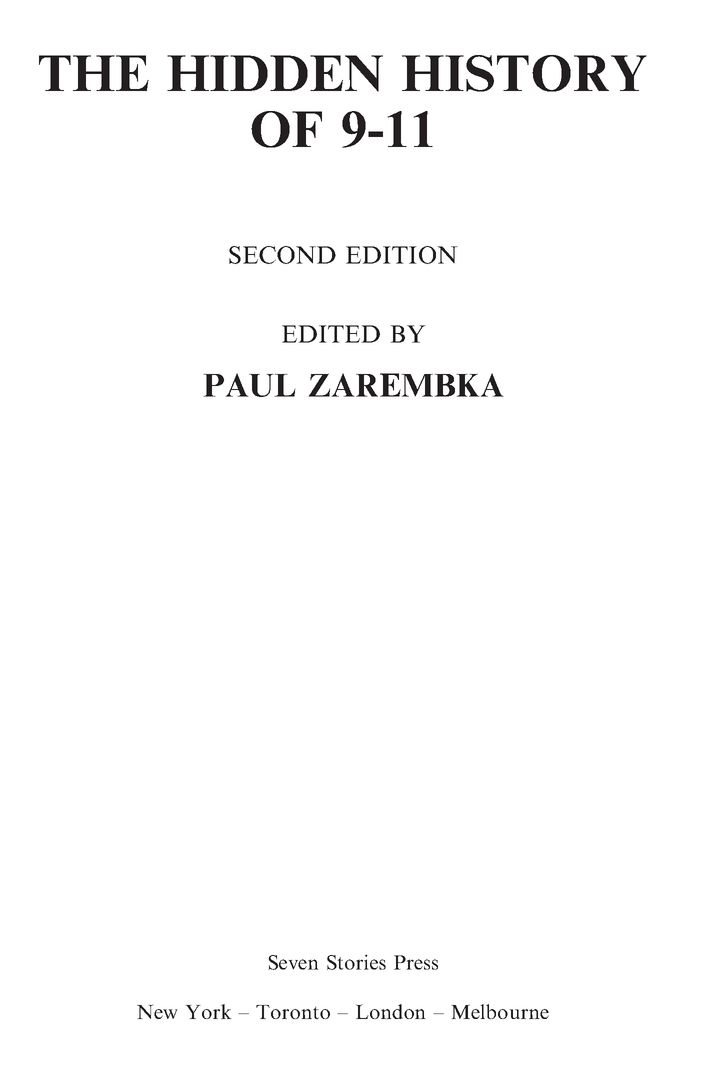Table of Contents
CONTRIBUTORS
Nafeez Mosaddeq Ahmed is executive director of the Institute for Policy Research & Development in London. He teaches international relations at the Universities of Sussex and Brunel, and is currently pursuing doctoral research on European imperial genocides since the fifteenth century. His work on terrorism and foreign policy includes The War on Freedom, Behind the War on Terror, The War on Truth, and The London Bombings. He has written for the Independent on Sunday, Raw Story, Counter Punch, and ZNet, among many other publications.
Four Arrows (aka Don Trent Jacobs) is of Cherokee/Creek and Scottish/Irish blood. Former dean of education at Oglala Lakota College, then at Northern Arizona University, he is a professor at Fielding Graduate University. Four Arrows is the author of numerous book chapters and articles on critical thinking and counter-hegemonic education. His sixteen books include Primal Awareness, American Assassination: The Strange Death of Senator Paul Wellstone, Unlearning the Language of Conquest, and the forthcoming The Authentic Dissertation. His current research with functional MRI machines examines how emotionally based hidden bias prevents most humans accustomed to a dominant-culture worldview from using reasoning for understanding reality.
David Ray Griffin is emeritus professor of philosophy of religion and theology at Claremont School of Theology and Claremont Graduate University. The author or editor of thirty-three books, he has published six books about 9/11: The New Pearl Harbor, The 9/11 Commission Report: Omissions and Distortions, 9/11 and American Empire: Intellectuals Speak Out (edited with Peter Dale Scott), Christian Faith and the Truth Behind 9/11: A Call to Reflection and Action, Debunking 9/11 Debunking: An Answer to Popular Mechanics and Other Defenders of the Official Conspiracy Theory, and 9/11 Contradictions: An Open Letter to Congress and the Press.
Jay Kolar is a freelance writer in Lake Havasu City, Arizona. As a film studies instructor, he has taught courses in film analysis and mass media at Lane Community College, University of Iowa, and UCLA. His specialization in French film theory and close semiotic and structuralist analysis of film alerted his critical response to the events of 9-11, forcing him to take a much closer look at the available 9-11 footage and subsequent releases of bin Laden and alleged hijacker last will and testament videos. Since then, he has sustained 9-11 truth activism and the publics right to a constitutional, transparent, and accountable government.
David MacGregor is professor of sociology at Kings University College at the University of Western Ontario. He is the author of numerous articles and books on Hegel and Marx, including Hegel and Marx After the Fall of Communism. He has contributed articles on deep politics, the sociology of evil, and automobility. His essay, The Deep Politics of September 11: Political Economy of Concrete Evil, appeared in Volume 21 of Research in Political Economy - Confronting 9-11, Ideologies of Race, and Eminent Economists. His first book, The Communist Ideal in Hegel and Marx, won the prestigious John Porter Memorial Prize of the Canadian Sociological Association.
Diana Ralph is associate professor of social work at Carleton University, Ottawa. She has organized around a broad range of social justice issues, including antipoverty, civil rights, civil liberties, womens issues, the environment, aboriginal rights, labor rights, and justice in Israel/Palestine. Her books include Work and Madness: The Rise of Community Psychiatry and Open for Business, Closed to People: Mike Harriss Ontario. She is an associate editor of Outlook Magazine.
Kevin Ryan is former site manager for Environmental Health Laboratories, a division of Underwriters Laboratories (UL). A chemist and laboratory manager, he was fired by UL in 2004 for publicly questioning the report being drafted by the National Institute of Standards and Technology (NIST) on their World Trade Center investigation. In the intervening period, Ryan has completed additional research while his original questions, which have become increasingly important over time, remain unanswered by UL or NIST. Currently Mr. Ryan is quality control manager for a pharmaceutical company in Bloomington, Indiana. He also serves as coeditor for the Journal of 9/11 Studies.
Bryan Sacks is an adjunct professor of philosophy at Drexel University. He is the cofounder and chief writer of Collateral, a weekly independent news program airing at www.collateralnews.tv. Over the past fifteen years, Sacks has taught philosophy at Rutgers University at Camden, Temple University, Rowan College of New Jersey, and Immaculata University. Most recently, he was a member of the organizing committee for Publicizing Truths with Consequence: Independent Media vs. the Corporate Coup, a strategy summit held in Santa Cruz, California, in January 2008. Information can be found at www.truthemergency.us.
Paul Zarembka is professor of economics at the State University of New York at Buffalo. Editor since 1977 of Research in Political Economy, this series of twenty-four annual volumes addresses economic and political issues from the perspective of the social classes involved. He is the author of Toward a Theory of Economic Development and editor of Frontiers in Econometrics. Daniel McFaddens chapter in the latter was a cited motivation for McFaddens 2000 Nobel Prize in Economics. Zarembka is also coeditor of Essays in Modern Capital Theory. He has been a senior researcher at the International Labor Organization, Geneva, Switzerland, and a Fulbright-Hayes lecturer in Poznan, Poland. Currently working within the Marxist tradition on a book on the accumulation of capital, he has been a union president on his campus and is currently its grievance officer for academics. The Hidden History of 9-11-2001 first appeared in 2006 as part of the Research in Political Economy series.
PREFACE
Early in September 1964, the renowned British philosopher Bertrand Russell asked sixteen questions about the Warren Commission on the assassination of President John F. Kennedy. Famously, that Commission asserted shortly thereafter that a lone assassin murdered the chief of state. Then Attorney General Robert F. Kennedy, himself very experienced and effective in prosecuting the mafia, and a number of his associates were convinced that a conspiracy was involved instead. Today, the well-known theologian David Ray Griffin has developed sixteen observations regarding 9-11 that are as insightful and disconcerting as were Russells questions. Griffins observations appear here (see page xvii) and represent a partial introduction to our subject. We include Russells questions as an appendix.
In both the JFK and 9-11 cases, a fundamental problem for understanding the events lies with the governments total control of the investigation and the failure of the media even to exhibit the most basic awareness of that problem, let alone investigate. Correctly understanding dramatic events is absolutely essential before taking appropriate action.
We begin our presentation of the hidden history of 9-11 with a chapter examining what is known about the identities of alleged hijackers. This is followed by an examination of the planes and insider financial trading beforehand, the collapses of the three buildings (not only the two towers), and the military drills on that day. The following four chapters move away from 9-11 itself and consider the relationship of Al-Qaeda to Western covert operations, the possibility of governmental terror being organized against a citizenry, how the 9-11 Commission was compromised from the beginning, and, finally, the use of the war on terror to secure American interests abroad and limit democracy and human rights at home, with Islamophobia as an ideological weapon.


